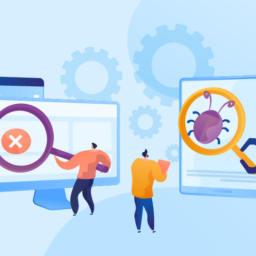Do you remember citrus city? It was one of the electronic retailers in the U.S. in 2009. It became unsuccessful because they were not able to address the latest customer requirements. It eventually surrendered its inability to reply skillfully and smartly to the proliferating popularity of online retailers such as Amazon.
Customer experience passes via the chain of transformations. This leads the retail industry to be ready and deals with the modifications. Traditional giants and retailers such as Walmart have allocated more than a decade and huge finance to revamp and restructure businesses to address the requirements of online customers.
There are many hurdles that the retail sector encounters in the wake of ordinary customers’ preferences and demands. According to some industry experts, different thinking for competitive advantage and improved productivity continues to be a challenge for the retail sector. This is the point where technology acts as the savior and plays a vital role in getting the software tested for desired outcomes.
It does not matter if it is an online eCommerce platform or a brick-and-mortar outlet, IT plays an imperative role in enabling the retailers to handle market difficulties and fulfill customers’ demands efficiently.
What is the significance of technology or IT in the retail industry? In other words, technology helps you to work 24 hours a day and 7 days a week. This is not expected from humans.
- Customer Know-How: when people shop at your store and go to the billing counter, the things are scanned at the Point of Sale (POS), the retailer attains the entire data to know the customer better and forecast the probable preferences. Division of such purchase patterns enables retailers to assess the inventory flow that assists to order the needed stock and circumvent the out-of-stock situations.
- Flawless customer experience: Ecommerce is quickly sprouting and posing countless difficulties for established retail brands. One of the main factors that e-commerce players are able to provide is the personalized and seamless online shopping experience. There are a huge number of online portals that are getting responsive interactive to customer requirements.
- Omni-channel approach: It doesn’t matter if the customer is shopping offline or online, technology platforms assist retailers to provide a consistent and flawless experience. It further assists to control and manage activities from one dedicated space. This offers ease in doing business and it is very cost-effective.
- Planned approach: Retailers are provided well-analyzed data for enabling the company, with the correct technology platform. This assists to attain correct outcomes within timelines. Leveraging the correct technology platform assist to manage activities and plan effectively across online and offline stores.
For this reason, they say that online retailer is present here to convert, however, technology/IT is its perfect enabler.
Some main testing hurdles that must be addressed by the retail sector are:
- Mobile POS and Online Security: The requirement to develop across the online platform has increased significantly. This needs secure testing and software development practices that develop a security testing model and tools to develop the mobile and web interface secure for the consumers.
- Managing promotions: The retailers promote different promotional activities or coupons to offer them online. They help in managing the activities flawlessly across online and offline platforms. This is the point where the IT apps are required to get functional and aligned across various retail channels. If there is an error or delay in testing or configuring the apps, it can badly impact time-to-market. This needs continuous testing for effective performance and desired results across the platform.
- Testing Legacy Systems: Larger retailers work in coordination with IT systems that developed approximately 20 to 30 years ago. This makes testing difficult and test coverage ineffective. This also needs a complete testing process to test all the apps effectively.
Furthermore, the increasing quantity of POS apps, NFC technology, credit card reader devices, and POS credit card enabled mobile apps to expect detailed security verification for the main infrastructure. This is an additional requirement to execute 24*7 app testing across all POS apps.
Separate software testing with active application of Test Automation Center of Excellence Is Very Important
There is a constant requirement to execute tests across technology devices and platforms, automating tests for consistent and enhanced outcomes is a required approach. The marketplace is flooded with open source and licensed test automation tools to speed up time-to-market and guarantee cost-effectiveness and quality. Furthermore, this process is utilized by automation testing companies to guarantee app performance that is expected to provide frequent outcomes across e-portals and stores.






